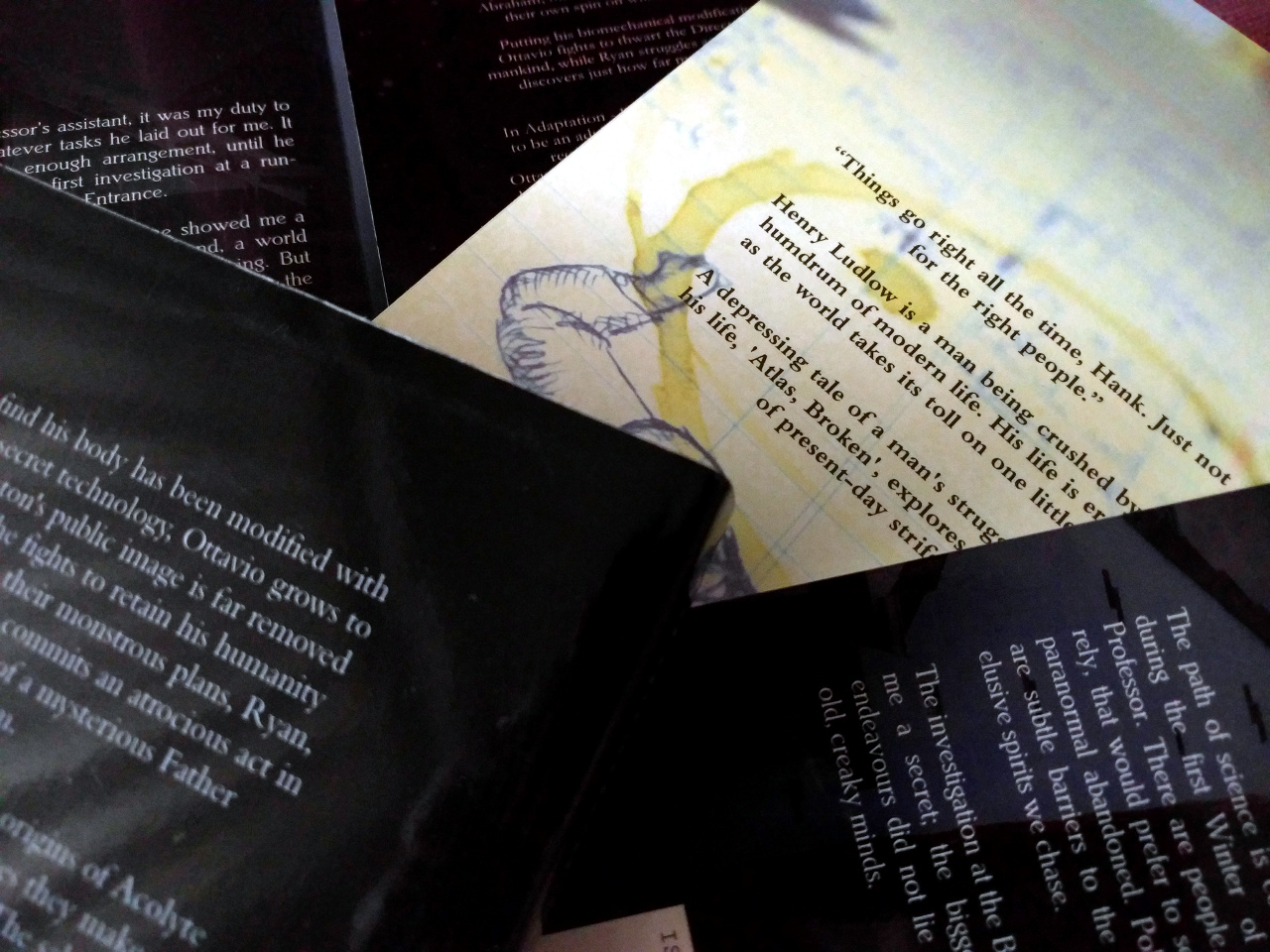Third draft of Jolimont Street Ghost is done. More changes, “whoops, how’d that get in there?”, get rid of that unnecessary tosh, red pens and redder eyes.
Now I’m going to let it stew once more, while I figure out a release date, and attack the problem that, for me, is writing’s equivalent of cleaning the shower: the blurb.
It’s just a summary, right?
No. No it is not. If you’re thinking of a synopsis or a digest, that, to me, is akin to cleaning the toilet. I’ve got my own beef with synopses, but this is about the blurb.
The blurb is important. It let’s the reader know just what the book, this marvelous creation, is about. It’s a hook to get their attention and feed their curiosity. It’s a marketing tool. It’s a filter to let an audience decide if they will enjoy it. And it comes in two forms: short and very short.
The short can go onto the back of the print edition, and it’s also sent to various re-sellers. the very short is also sent to re-sellers and is what gets pushed under the nose of the audience when they click the ‘tell me more’ button. So it’s gotta be short, sweet and to the point.
Therein lies the challenge: How does one convey the subtleties of the book when they’ve got a limited character count? How does one grab the reader and say, “This book is (or is not) for you!”? How does one give a story line without giving away the punchline?
The Scene, the Theme, the Premise and the Moral
The hard work of writing the book is done, so writing less than a hundred words should be a cinch, but it ain’t. To help out, I write down the Premise, that global statement of hypothesis, that drove the book.
Then I write the moral out (which is surprisingly hard to summarise into a sentence), and put words pertaining to the theme and the scenery of the book, all in the same vernacular and perspective as the book. For example, with Paranormology, the narrator is relating a personal story from a Victorian era, hence the blurb will be a description, by him, of his tale in his manner of speech. Atlas, Broken, in contrast, is written in a third person, as an observer of Henry, in a more modern tongue.
Thus, the scribbles on my page read:
“A curse brought about by an individual can only be attended to by that individual. Rumour, gossip, conjecture, public opinion and speculation are born from assumptions. Assumptions. Science claims to make no assumptions, yet relies upon them. Light and Dark. Balance, what goes around comes around. Summoned demon, born in darkness. Occult, sorcery, physical harm, reputation harm.”
With these words and phrases, I then construct two sentences, one about the metaphysical nature of the book, and once about the physical side. In this way, I can give the reader two aspects to help them out.
“The supposition that darkness is merely the absence of light is both popular and false, as those who practise the occult can affirm.”
“In the dark cellar of number thirteen Jolimont Street, a house we had assumed benign, I unwittingly brought forth an ancient evil that threatened not only our reputations, but our souls.”
There. That’s 320 odd characters, 80 shy of the limit for the ‘very short’ version. Add in the series information, and I’ve reached my limit.
It took about an hour to write, twiddle, poke, and condense (I’ve got a little boy blowing a very loud recorder, so that skews the figures). That’s why it’s like cleaning the shower: A whole lot of scrubbing and rubbing and swearing in a cramped space, with very little at the end to show for it.
In the ‘short’ version, I’ll be able to add in another sentence or two to expand on the concepts of gossip, rumour and the like.
Now I’m going to go and have a lie down.

